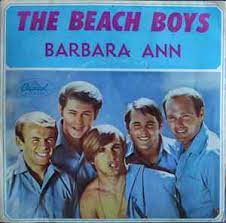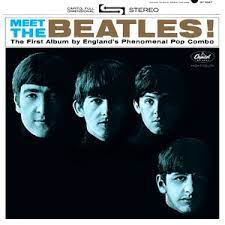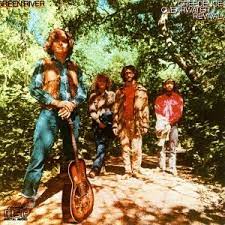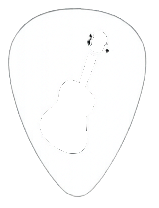Learn How to Play The Byrds’ Best Songs on Acoustic Guitar
The Byrds were pioneers of folk-rock, blending jangly 12-string guitar textures with thoughtful lyrics and lush harmonies. Their influence can still be felt across decades of rock, folk, and Americana music.
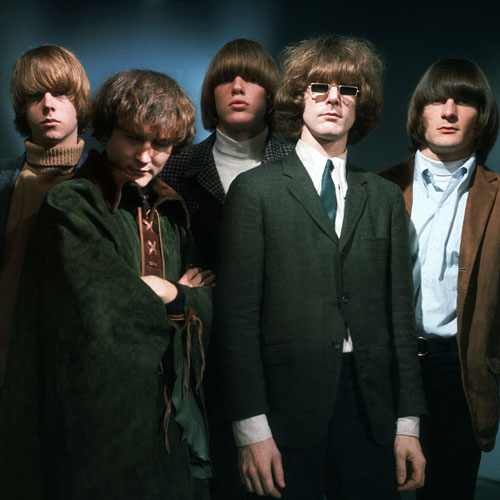
On this page, you'll find 6 lesson-ready Byrds classics like “Mr. Tambourine Man,” “Turn! Turn! Turn!,” and “Chimes of Freedom.” Each song has been adapted for acoustic guitar and comes with helpful rhythm tips, chord sheets, and video previews.
Whether you're revisiting these hits or learning them for the first time, these lessons are designed to keep things simple, musical, and fun.
🎸 Overview Video - “Watch This Preview of My Best Byrds Guitar Songs”
The Byrds Guitar List
1. Chimes Of Freedom2. Hickory Wind
3. I'll Feel A Whole Lot Better
4. Mr Spaceman
5. Mr Tambourine Man
6. Turn Turn Turn
1. Chimes Of Freedom - Learn To Play On Guitar
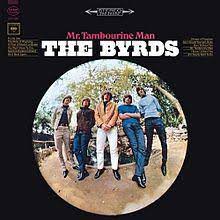
Chimes of Freedom is a song written by Bob Dylan in 1964, and it was first released on his album "Another Side of Bob Dylan." The song is a tribute to the freedom fighters and the oppressed, and it has been interpreted as a protest against the Vietnam War and the civil rights movement.
The Byrds recorded their version of the song in 1965 for their third album, "Fifth Dimension." The Byrds' version of the song features their signature jangly guitars and tight vocal harmonies. The song was released as a single, but it failed to chart
Chords And Strumming
Play a down down up down up down up and repeat rhythm pattern here but no lead required in standard tuning. For chords you'll need a G, C, Em, D and an Am.
Guitar Lesson Details - (chords & lyrics sheet incl with lesson)
Back To Song List
2. Hickory Wind - Learn To Play On Guitar
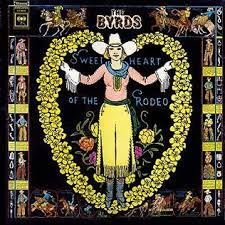
Hickory Wind is a song written by Gram Parsons and Bob Buchanan, and it was first recorded by The Byrds in 1968 for their album "Sweetheart of the Rodeo." The song is a wistful, melancholy ballad about homesickness and longing for a simpler way of life.
"Hickory Wind" has come to be seen as one of Gram Parsons' signature songs, and it is often cited as a classic example of country-rock. The song's poignant lyrics and timeless melody have ensured that it remains a beloved favorite of both Byrds and Parsons fans alike.
Chords And Strumming
The three chords here are G, C and D in standard tuning and some lead work. Play a root down up down up and repeat rhythm pattern.
Guitar Lesson Details - (chords & lyrics sheet incl with lesson)
Back To Song List
3. I'll Feel A Whole Lot Better - Learn To Play On Guitar
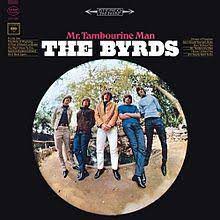
I'll Feel a Whole Lot Better is a song written by Gene Clark, who was a founding member of The Byrds. The song was first released on the band's debut album, "Mr. Tambourine Man," in 1965
"I'll Feel a Whole Lot Better" was released as a single in 1965, but it failed to chart. However, the song has since become one of The Byrds' most popular and enduring tracks, and it has been covered by numerous artists over the years, including Tom Petty and the Heartbreakers, The Bangles, and Yo La Tengo.
Chords And Strumming
This one has an arpeggio pattern throughout with a cap 2nd fret but no lead work. For chords you'll need a C, G6, Am, Am/G, Am/Gb, Am/F and a D/Gb.
Guitar Lesson Details - (chords & lyrics sheet incl with lesson)
Back To Song List
4. Mr Spaceman - Learn To Play On Guitar
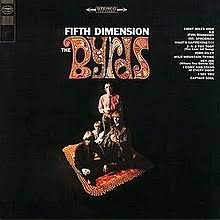
Mr. Spaceman is a
song written by Jim McGuinn (later known as Roger McGuinn) and was
released by The Byrds in 1966 as a single and later included on their
album "Fifth Dimension."
"Mr. Spaceman" was a minor hit for The Byrds, reaching #36 on the Billboard Hot 100 chart. The song has since become a fan favorite and is often cited as one of the band's most whimsical and lighthearted tracks.
The song has also been covered by a number of other artists, including The Lemonheads and The Minus 5.
Chords And Strumming
Some lead required here with a root down root up down up and repeat rhythm pattern with the chords G, A7, D, C, G6 and an Am.
Guitar Lesson Details - (chords & lyrics sheet incl with lesson)
Back To Song List
5. Mr Tambourine Man - Learn To Play On Guitar
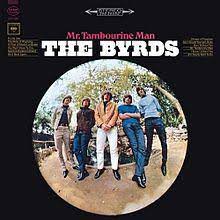
Mr. Tambourine Man is a song written by Bob Dylan and famously covered by The Byrds in 1965. The song was a critical and commercial success, and it helped establish The Byrds as one of the most innovative and influential bands of the mid-1960s.
The Byrds' version of "Mr. Tambourine Man" features a
distinctive jangly guitar sound, which became a hallmark of the band's
style.
The
song was a massive hit for The Byrds, reaching #1 on the Billboard Hot
100 chart in 1965.
Chords And Strumming
Only three chords here and they are D, A and a G with just some lead in the beginning and end and played in standard tuning. For rhythm play a root up down up root up down up and repeat pattern.
Guitar Lesson Details - (chords & lyrics sheet incl with lesson)
Back To Song List
6. Turn Turn Turn - Learn To Play On Guitar
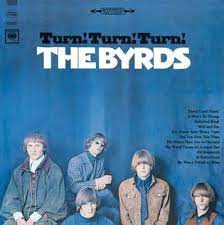
Turn! Turn! Turn! (To Everything There Is a Season) is a song based on a passage from the Bible's Book of Ecclesiastes. The song was written by Pete Seeger in the late 1950s and first recorded by the folk group
The Limeliters in 1962. The most famous version of the song, however, was recorded by The Byrds in 1965 and became a hit single.
The
song was a commercial success for The Byrds, reaching #1 on the
Billboard Hot 100 chart in late 1965.
Chords And Strumming
Some lead in this number in standard tuning while playing a root down up root up down up and the use a rake pattern using a root down up root up down up in the chorus sections. The chords here are D, G, D/Gb, A7 and an Em.
Guitar Lesson Details - (chords & lyrics sheet incl with lesson)
Back To Song List
The Byrds’ unique sound helped define the folk-rock era, and their songs are ideal for acoustic guitar players looking to master rich rhythms and melodic chord progressions.
These six lessons offer a great entry point into their catalog, capturing the essence of the band while remaining easy to play and rewarding to learn. Grab your guitar, check out the demos, and enjoy strumming along to these timeless tracks. Looking for more 60s folk-rock favorites? Browse our related artist pages below.
If you liked this Byrds guitar songs page you might also like ... (click images)
Home Page
Popular Songs From The 60s
